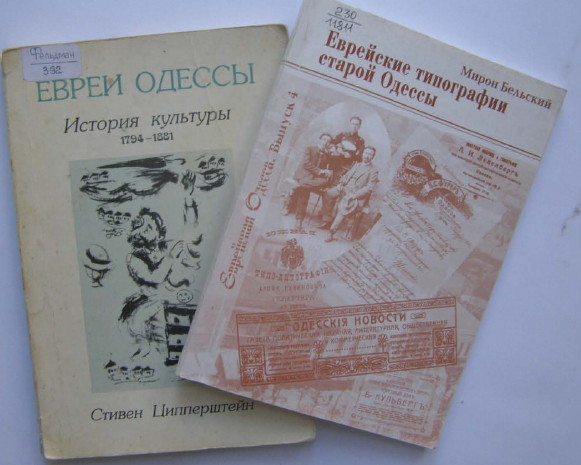Institute of Jewish Culture of the All-Ukrainian Academy of Sciences
Institute of Jewish Culture of the All-Ukrainian Academy of Sciences (Інститут єврейської культури при ВУАН; Instytut ievreiskoi kultury pry VUAN). An institution founded in Kyiv in November 1926 to co-ordinate and promote Yiddish pedagogy and scholarship and Jewish studies in the Ukrainian SSR. It was originally a Chair of Jewish Culture. Its first director was the philologist and Jewish civic figure N. Shtif. In 1919 a Hebraist Historical-Archeographic Commission had been established at the All-Ukrainian Academy of Sciences (VUAN) under Ahatanhel Krymsky; its real leader, however, was I. Galant. The commission published articles in Ukrainian learned journals and collections and its own Zbirnyk prats' (2 vols, 1928–9) before being abolished in 1929. It was then that the Chair of Jewish Culture, under the direction of Y. Liberberg, was upgraded into a scientific research institute.
The institute had a sizable staff (30 in 1929, over 100 in 1934) and consisted of eight sections: philology (headed by N. Shtif and then Eliahu Spivak), history (Y. Liberberg and then A. Margolis), literature (N. Oyslender and then M. Wiener), pedagogy-pedology (Y. Yakhinson), socioeconomic (I. Weizblit, from 1930), bibliology (A. Kvitny); ethnography (M. Wiener), and Birobidzhan studies (from 1934). It had a large library (based on that of the former Jewish Historical-Ethnographic Society, est 1908), an archive (including that of the Society for the Spread of Enlightenment among the Jews of Russia, est 1863), a bibliographic center, a press archive, and a graduate program. A branch in Odesa, with the historian S. Borovoi as head, was short-lived (1928–9). The institute worked closely with official Jewish scholarly institutions in Moscow and Minsk.
With the demise of the policy of Ukrainization and the onslaught of Stalinism, the institute suffered persecution (eg, the harassment of Shtif [d 1933] and the removal of Weizblit in 1931 and Oyslender in 1932). Nonetheless, from 1931 to 1936 it was the leading Jewish scholarly institution in the USSR. In 1934 Liberberg and many other members of the institute immigrated to the new Jewish Autonomous oblast in Birobidzhan, and G. Gorokhov became the new director. In 1936 the institute was suddenly closed down, and Gorokhov and most of its other staff were arrested as ‘Trotskyists’ and ‘Zionists.’ In late 1936 the institute was replaced by a downgraded Cabinet for the Study of Soviet Jewish Literature, Language, and Folklore under Eliahu Spivak. In 1949, during Andrei Zhdanov’s purge of Jewish culture, the cabinet was liquidated and its members were arrested.
Important publications of the institute and the cabinet are the journals Di Yidishe Shprach (24 issues, 1927–30), Shriftn (1 vol, 1928), and the quarterly Visnshaft un revoliutsye (1934–6); a bibliological collection (1930); I. Weizblit’s study of Jewish population dynamics in Ukraine in 1897–1926 (1930); A. Yuditsky’s history of the Jewish bourgeoisie in Russia in the first half of the 19th century (1931); M. Berehovsky’s book on Yiddish musical folklore (1934); and M. Wiener’s history of 19th-century Yiddish literature (1940). The institute also published several Yiddish dictionaries and sponsored all-Union conferences on Jewish socioeconomic research (1931) and the Hebrew language (1934).
Roman Senkus
[This article originally appeared in the Encyclopedia of Ukraine, vol. 2 (1988).]
